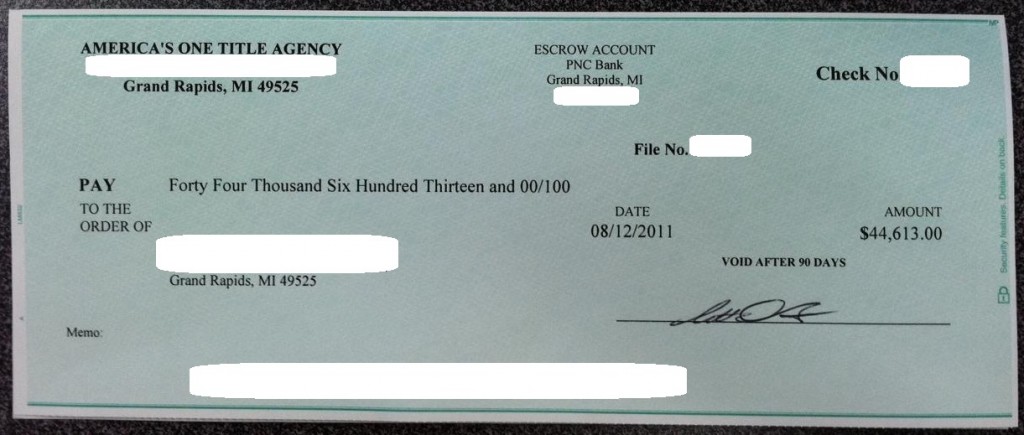All Categories
Featured
Table of Contents
Mobile homes are considered to be personal effects for the purposes of this section unless the owner has actually de-titled the mobile home according to Area 56-19-510. (d) The residential or commercial property should be promoted for sale at public auction. The promotion must be in a newspaper of basic flow within the area or district, if suitable, and must be entitled "Overdue Tax obligation Sale".
The advertising and marketing has to be released once a week prior to the legal sales date for three consecutive weeks for the sale of real residential property, and 2 consecutive weeks for the sale of personal residential or commercial property. All expenditures of the levy, seizure, and sale should be included and collected as extra expenses, and should consist of, yet not be limited to, the expenses of taking possession of actual or individual property, marketing, storage, determining the borders of the residential property, and mailing accredited notifications.
In those instances, the policeman may dividers the building and equip a legal summary of it. (e) As an option, upon authorization by the area regulating body, a county may make use of the procedures supplied in Chapter 56, Title 12 and Area 12-4-580 as the initial action in the collection of overdue tax obligations on actual and personal effects.
Effect of Change 2015 Act No. 87, Area 55, in (c), replaced "has de-titled the mobile home according to Area 56-19-510" for "gives written notification to the auditor of the mobile home's annexation to the land on which it is situated"; and in (e), put "and Area 12-4-580" - real estate training. AREA 12-51-50
Which Course Should I Take To Become Proficient In Financial Guide?

The surrendered land compensation is not needed to bid on residential or commercial property understood or sensibly presumed to be contaminated. If the contamination becomes recognized after the quote or while the compensation holds the title, the title is voidable at the political election of the payment. HISTORY: 1995 Act No. 90, Area 3; 1996 Act No.
Settlement by effective bidder; receipt; disposition of profits. The successful bidder at the delinquent tax sale will pay lawful tender as offered in Section 12-51-50 to the person formally charged with the collection of overdue tax obligations in the complete amount of the proposal on the day of the sale. Upon settlement, the person formally charged with the collection of overdue taxes shall equip the purchaser a receipt for the acquisition cash.

Expenditures of the sale need to be paid first and the equilibrium of all delinquent tax obligation sale monies collected should be committed the treasurer. Upon invoice of the funds, the treasurer will mark immediately the general public tax obligation documents pertaining to the home sold as adheres to: Paid by tax sale hung on (insert date).
How Do I Get Started With Overages Workshop Training?
166, Section 7; 2012 Act No. 186, Section 4, eff June 7, 2012. AREA 12-51-80. Settlement by treasurer. The treasurer will make full settlement of tax obligation sale monies, within forty-five days after the sale, to the respective political neighborhoods for which the taxes were levied. Earnings of the sales over thereof have to be preserved by the treasurer as or else given by regulation.
166, Area 8; 2015 Act No. 87 (S. 379), Section 57, eff June 11, 2015. Result of Modification 2015 Act No. 87, Section 57, replaced "within forty-five days" for "within thirty days". AREA 12-51-90. Redemption of real estate; job of purchaser's rate of interest. (A) The skipping taxpayer, any kind of grantee from the proprietor, or any kind of home loan or judgment lender might within twelve months from the day of the overdue tax sale retrieve each thing of genuine estate by paying to the individual formally charged with the collection of overdue taxes, evaluations, fines, and prices, with each other with interest as supplied in subsection (B) of this section.
What Is The Most Suitable Course For Beginners In Real Estate?
334, Area 2, supplies that the act uses to redemptions of home cost overdue taxes at sales hung on or after the reliable date of the act [June 6, 2000] 2020 Act No. 174, Sections 3. A., 3. B., supply as follows: "AREA 3. A. investor. Notwithstanding any type of other arrangement of law, if real estate was cost an overdue tax sale in 2019 and the twelve-month redemption duration has actually not ended since the effective date of this section, after that the redemption duration for the actual property is expanded for twelve extra months.
HISTORY: 1988 Act No. 647, Section 1; 1994 Act No. 506, Area 13. In order for the owner of or lienholder on the "mobile home" or "manufactured home" to redeem his residential property as allowed in Section 12-51-95, the mobile or manufactured home topic to redemption need to not be gotten rid of from its area at the time of the overdue tax sale for a duration of twelve months from the date of the sale unless the owner is required to move it by the individual other than himself that possesses the land upon which the mobile or manufactured home is positioned.
If the owner relocates the mobile or manufactured home in violation of this section, he is guilty of a violation and, upon conviction, should be punished by a fine not surpassing one thousand bucks or jail time not exceeding one year, or both (foreclosure overages) (overages). In enhancement to the other demands and repayments needed for a proprietor of a mobile or manufactured home to redeem his residential or commercial property after a delinquent tax obligation sale, the failing taxpayer or lienholder also should pay rent to the purchaser at the time of redemption a quantity not to go beyond one-twelfth of the tax obligations for the last finished real estate tax year, aside from fines, costs, and rate of interest, for each and every month between the sale and redemption
Cancellation of sale upon redemption; notice to purchaser; refund of acquisition price. Upon the genuine estate being retrieved, the individual formally billed with the collection of overdue taxes shall cancel the sale in the tax sale publication and note thereon the amount paid, by whom and when.
What Is The Most Important Thing To Know About Tax Lien?
Individual residential or commercial property shall not be subject to redemption; purchaser's expense of sale and right of property. For individual residential property, there is no redemption duration succeeding to the time that the home is struck off to the effective purchaser at the delinquent tax obligation sale.
HISTORY: 1962 Code Section 65-2815.10; 1971 (57) 499; 1985 Act No. 166, Area 11. Neither even more than forty-five days nor much less than twenty days before the end of the redemption duration for real estate marketed for tax obligations, the person formally charged with the collection of overdue taxes shall mail a notice by "qualified mail, return receipt requested-restricted distribution" as provided in Section 12-51-40( b) to the defaulting taxpayer and to a grantee, mortgagee, or lessee of the residential property of document in the proper public documents of the region.
Latest Posts
Back Taxes Property For Sale
Property Tax Default Auctions
Property Tax Delinquent